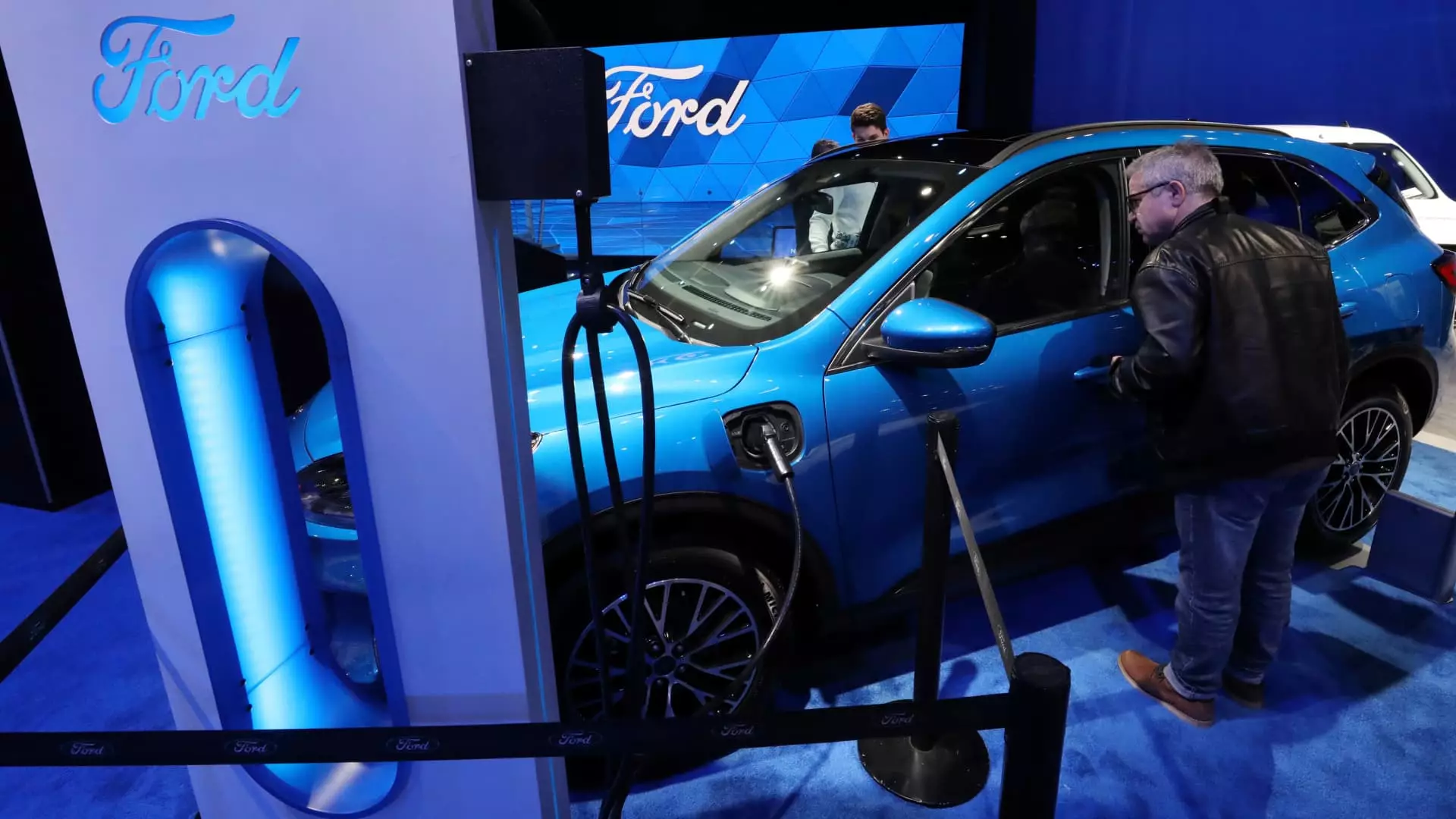Ford Motor’s recent announcement about delaying the production of a new all-electric large SUV and pickup truck has brought attention to the shifting landscape of the automotive industry. The decision to push back the production of these electric vehicles comes as the company pivots to offering hybrid options across its entire North American lineup by 2030. This move reflects the challenges faced by Ford and other automakers in the EV market, where adoption has been slower than anticipated and production costs remain high. The postponement of the three-row SUV and the next-generation pickup underscores the complexities of transitioning from gas-powered vehicles to EVs.
Despite being the second-largest EV brand in the U.S., Ford has faced stiff competition from the likes of Tesla, Hyundai, Kia, and Genesis. Recent sales figures show that both Tesla and Hyundai outsold Ford in the EV segment, highlighting the need for the company to reevaluate its EV strategy. Ford CEO Jim Farley emphasized the importance of scaling a profitable EV business and bringing the right mix of gas, hybrid, and fully electric vehicles to market at the right time. The company’s decision to delay production in favor of capitalizing on emerging battery technology is a strategic move aimed at enhancing its competitiveness in the EV market.
Ford’s decision to focus its EV efforts on new plants, such as the “BlueOval City” campus in Tennessee, reflects a commitment to innovation and sustainability. The shift towards building breakthrough, next-generation EVs that are fully software-enabled underscores Ford’s dedication to creating cutting-edge electric vehicles. By leveraging digital experiences and potential services, the company aims to provide customers with enhanced durability and better value in its EV offerings. The continued construction of battery plants in Michigan, Tennessee, and Kentucky further solidifies Ford’s commitment to expanding its EV production capabilities.
Despite the promising growth in electric vehicle sales, Ford’s “Model e” electric vehicle business faced significant losses in 2023. The $4.7 billion loss, including $1.57 billion in the fourth quarter alone, signals the financial challenges associated with transitioning to EV production. Ford’s projection that the unit could lose between $5 billion and $5.5 billion in 2024 underscores the uncertainties and risks inherent in the EV market. The company’s decision to delay production and reevaluate its EV strategy reflects a cautious approach to navigating the complexities of the EV landscape.
Ford’s decision to postpone the production of new all-electric vehicles while focusing on hybrid options signals a strategic shift in its EV strategy. By leveraging emerging battery technology and investing in new production facilities, Ford aims to enhance its competitiveness in the EV market. The company’s commitment to scaling a profitable EV business and bringing innovative electric vehicles to market underscores its long-term vision for sustainability and innovation in the automotive industry.

